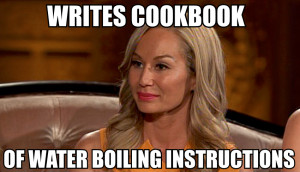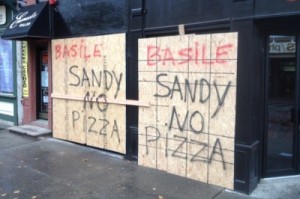Michael Livori, the chief executive of the Eastern Health Authority in South Australia – that includes Adelaide – would fit in well on the Real Housewives of Vancouver.
Like many Canadians, he doesn’t get angry, he’s just disappointed.
 Disappointed that almost 40 eastern suburbs restaurants and cafes tried to sell food which might have gone off after a severe storm cut power for up to two days in the Adelaide area.
Disappointed that almost 40 eastern suburbs restaurants and cafes tried to sell food which might have gone off after a severe storm cut power for up to two days in the Adelaide area.
In a report to the Eastern Health Authority’s May meeting, acting senior environmental health officer Nadia Conci says inspectors visited 55 premises in the wake of the February 4 storm.
Ms Conci said many of the businesses failed to throw out food that could have been contaminated after being unrefrigerated for up to 48 hours.
She said most of the inspected businesses were not insured for power outages because of high premium costs.
“Astoundingly, 70 per cent of these businesses were willing to risk selling food that was out of temperature control for a significant amount of time to recover costs,” Ms Conci said in her report.
More than 10,000 households were eligible to share in more than $6 million in compensation for the prolonged blackout.
Restaurants, cafes, delicatessens and supermarkets selling high-risk food — such as seafood and meat — and those with a history of unsafe food practices were prioritised for inspection.
The authority had to do follow-up inspections at 14 premises and one business had four follow-ups and a written warning because it refused to throw out food.
Mr Livori told the Eastern Courier Messenger, “For a large establishment like that to have that sort of attitude was very disappointing,”
He was not able to name the business.
“The big issue was that businesses were willing to take the risk.”
He said inspectors had limited powers under the Food Act to immediately seize food that had not been refrigerated because officers had to prepare a written notice before taking any action.
And consumers should be disappointed – or angry – that health types have limited powers. Good food safety is good for business.

